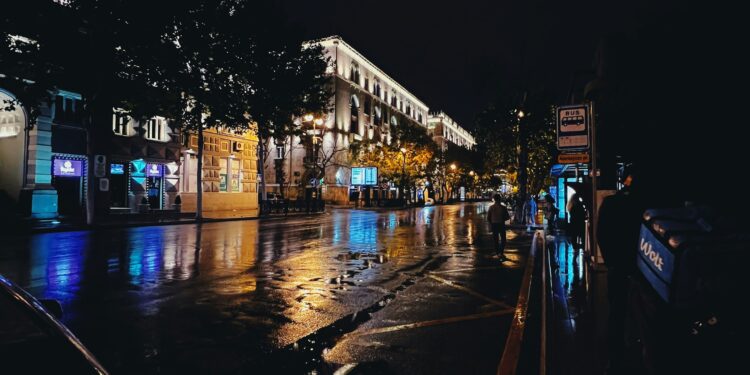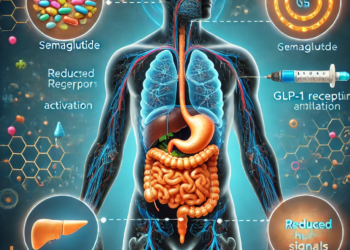I think a lot about the effects of misplaced mercy. Not long ago a friend of mine took care of a woman who had been abused by her boyfriend. He had a significant history of violence for a young man. He had prior encounters with the police for violent crime. If he had been incarcerated it was not for long. I suspect that his relative youth contributed to a sense that he deserved more of a chance to do better. A few weeks later he murdered the woman. A cold, calculated murder.
This is a constant feature of violence in America today, where young and old alike are released back to the streets after violent acts only to commit them again. Our cities were told to de-fund the police. To reduce incarceration. We need to give them a chance, we’re told. It’s unfair to ‘lock them up like animals.’ (And I do agree that prisons should not be the places of danger and torture that they have become.)
Are there other ways to rehabilitate the violent? Surely. However, we don’t seem to have found them yet. And once they discover that they can commit violence unimpeded, they continue to do so. They then live terrible, hopeless lives as predators; not lives of thriving and hope. This is as cruel to them as arrest and prison, if we believe that there is such a thing as a good, moral life.
Over time, more men and women and children are subject to danger. Can we judge the violent? If we don’t then their victims and the families of those killed and wounded will certainly be happy to judge.
The low-hanging fruit of mercy is, too often, full of blood.
A similar crisis is happening with car theft, shoplifting, mobs robbing their local pharmacies and department stores. Endlessly permitted, this sort of thing not only creates career criminals, it wrecks business owners and deprives communities of things they need, like food and pharmaceuticals, as stores simply close for good. ‘They’re just young people acting wild,’ is an easy thing to say. ‘They’re destroying communities,’ is a more accurate statement.
Inappropriate mercy pervades the drug epidemic. We have been told for decades that it was wrong to incarcerate people for drug offenses. Drugs, we were told, should be legal. It’s simply a person’s individual choice to use or not use. Some actually referred to them as illegal drug users, and counseled us as young physicians not to call them illegal drug ‘abusers.’
While drugs like methamphetamine, heroin, fentanyl and others remain illegal, they are now essentially legal since the police and the courts are simply outnumbered. Drugs are bought and sold across the land, in rural and urban areas alike. Drugs have devastated my home state of West Virginia.
When our emergency department patients have illegal drugs on their person, or in their bodies, it’s sometimes a medical problem. It rarely makes a blip on the radar of law enforcement. And I understand completely. Drugs are everywhere.
When we decided that drugs were a funny, edgy part of being a modern person, we opened the floodgates to suffering. Obviously, those who abuse drugs harm themselves and suffer greatly, their lives are shortened and until they die they are crushed by poverty, homelessness and mental illness. Their children are neglected and abused, by parents and others who come into their homes. Those children suffer from hunger and low educational attainment, then often repeat the tragedies of their parents. Grandparents, uncles, aunts, neighbors or the government intervene to care for them, but every child is deeply wounded when their parents are no longer available to them. But to so many cultural commentators, drugs are simply their choice. Who are we to judge?
Ultimately the poison of their addictions spread far and wide. It empowers and enriches their dealers, who are far more culpable than the addicts themselves. Our tolerance builds their empires, for without demand there are no drugs sold.
In addition, not only do the addicted overdose and die, along the way they introduce others to drugs. They spread infection with shared needles and sex. They commit crimes large and small, from theft to prostitution to murder, in the pursuit of their drugs of choice (or the business those drugs bring). It is tragic to see them deteriorate, to become zombies who walk the streets day and night, cold or hot, moving from high to high, their eyes empty, their lives wrecked until finally Narcan is too late.
We can certainly judge this, if only in hopes of stopping the spread of the problem and rescuing those who can be saved. Nobody sets out to be an addict, and these individuals need help to escape their demons. Anyone who has had, or lost, an addicted child, and wept in prayer and grief, knows that this pandemic is not a simple matter of the choices made by rational adults.
The drug addicted also crash their cars (marijuana related vehicular deaths are also rising). Their illnesses, HIV, hepatitis, endocarditis, sepsis, not only wreck their bodies, they overwhelm the ERs and inpatient wings of hospitals everywhere. They will, in due course, overwhelm what few nursing homes remain open.
And part of this problem is also the well crafted tale of the necessary mercy of an open border; where the passage of drugs and weapons and trafficked humans cannot be properly monitored. This dark mercy not only allows drugs but even more violence and sexual assault. This is not an invective against immigration but against immigration done in the most dangerous manner imaginable, without thought to downstream consequences.
It’s just so easy to feel good when we reach out to grab the low-hanging fruit of mercy and acceptance. To say ‘just let people do what they want.’ But it can also be cruel and callous. When we do we forget that the fruit should sometimes be left alone. We fail to take into account the things that will come from that initial, easy mercy, when the fruit falls and its seed grows and produces more and more suffering.
We live in worrisome times. And certainly (and I speak from a Christian perspective here) even the worst have themselves suffered and deserve due consideration and a chance at redemption. However, there is no healing when there is no acknowledgment of the disease.
We need to look beyond the self-satisfying permissiveness that is all too easy to give and impossible to retract. The Pandora’s Box of kindness which leads to more pain and suffering than we can imagine if only we pay attention.
Mercy can be given in such a way that it reaches far beyond our immediate good feelings. But it takes caution.
So before we pluck the fruit from the vine, we should make absolutely sure it isn’t poisonous.
Sounds like a story we’ve heard before, doesn’t it?















